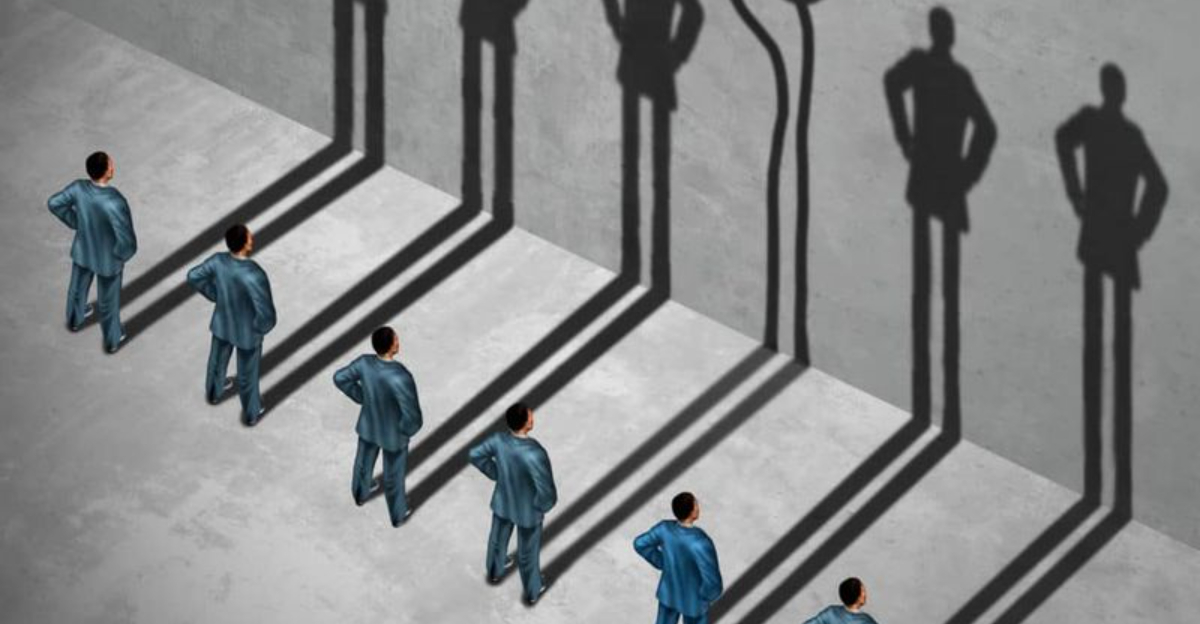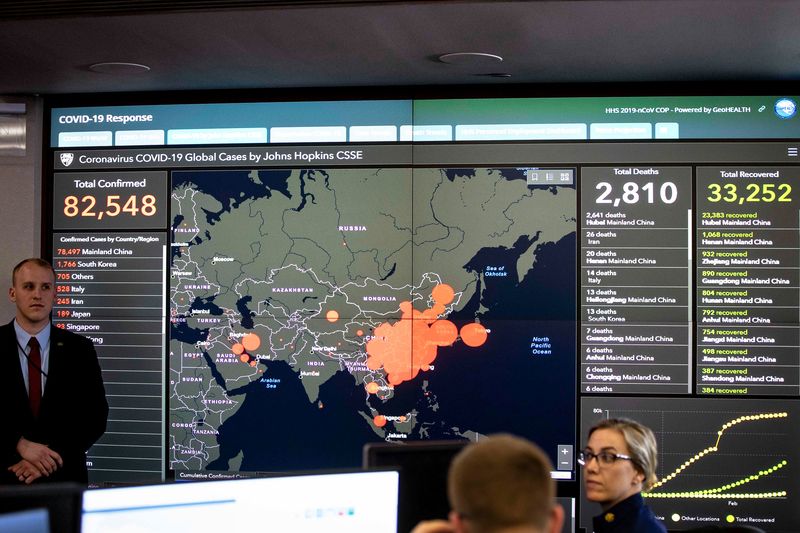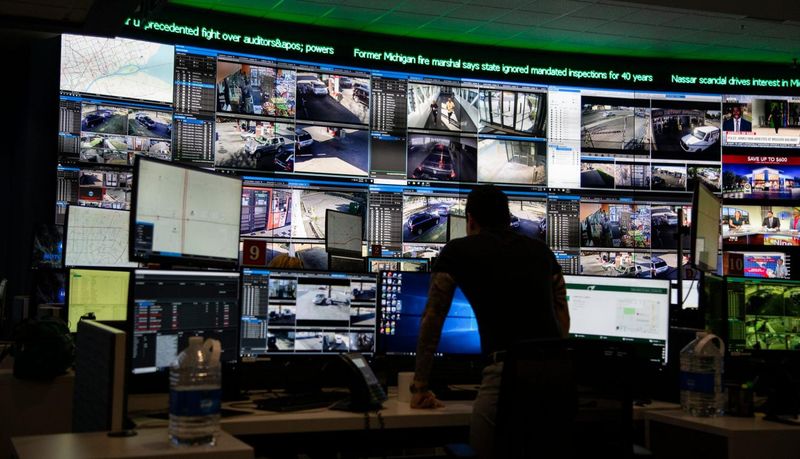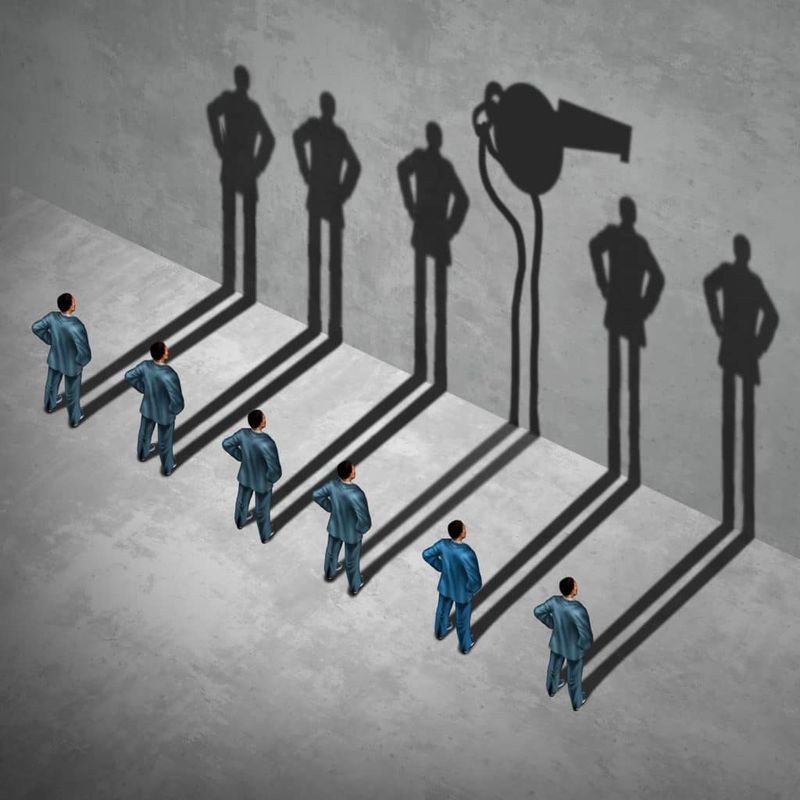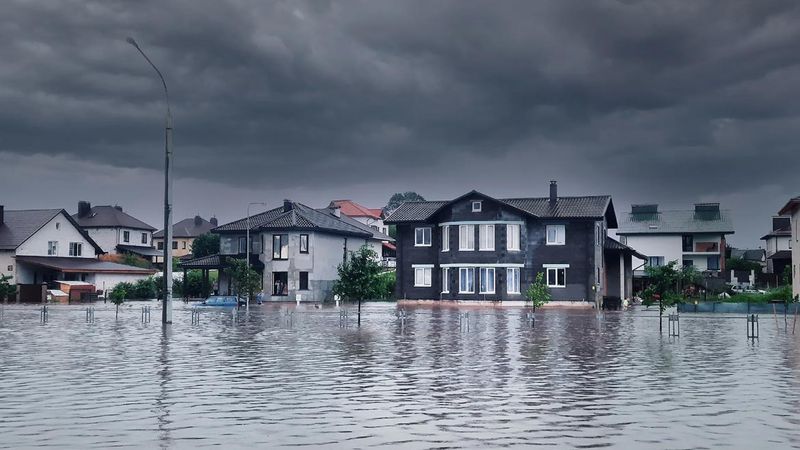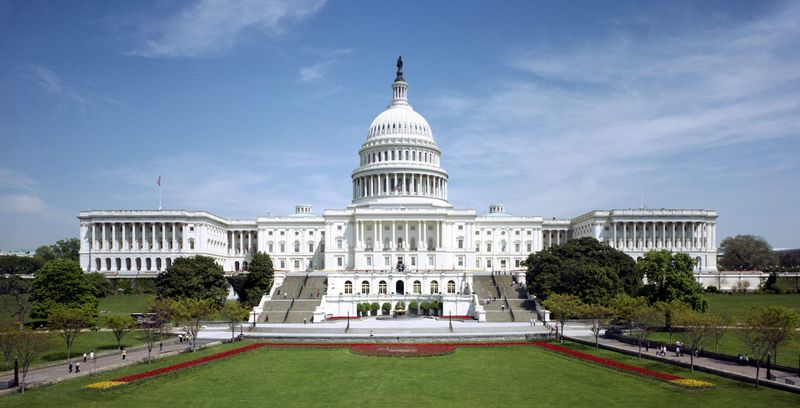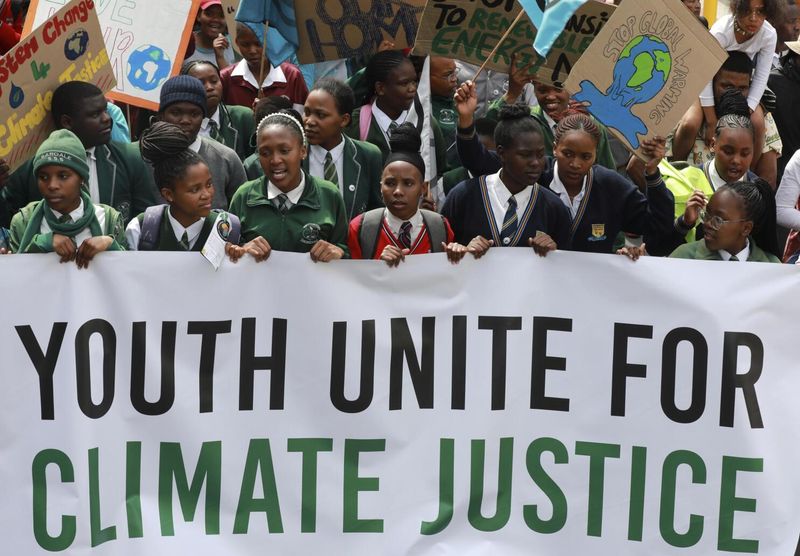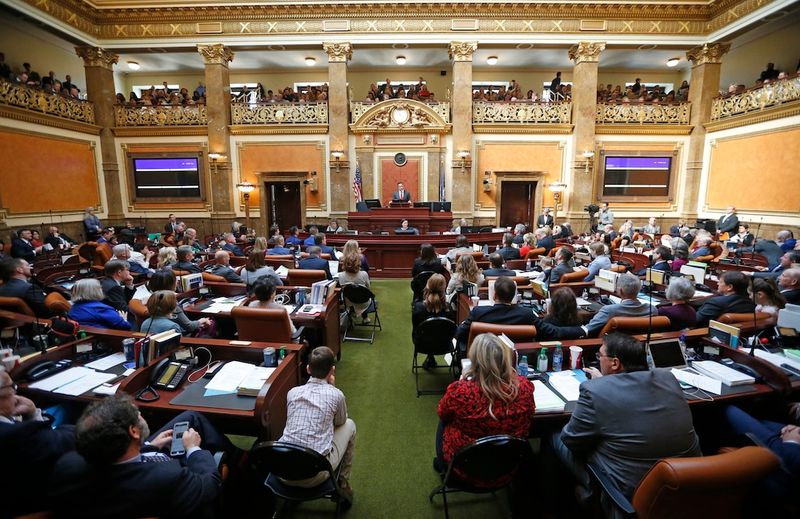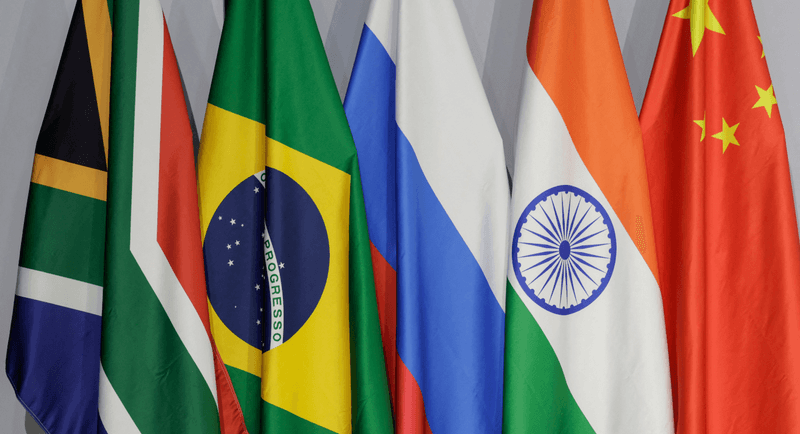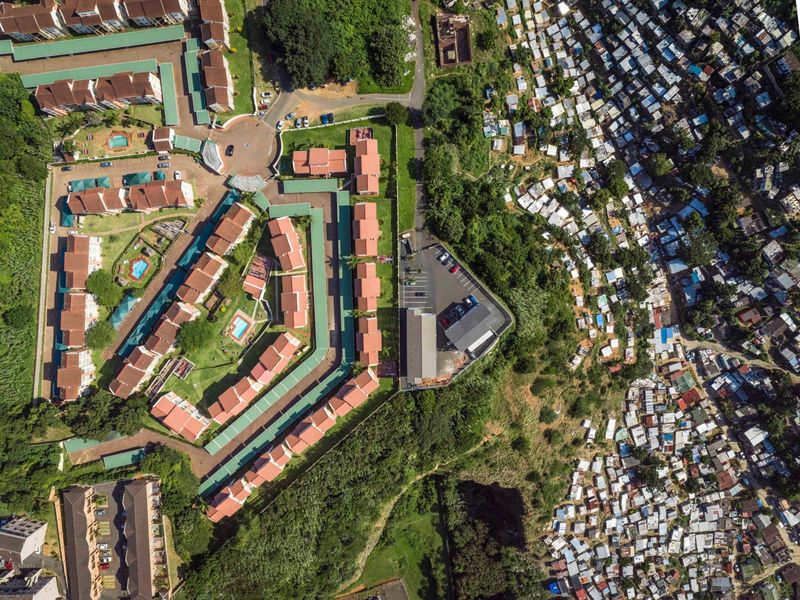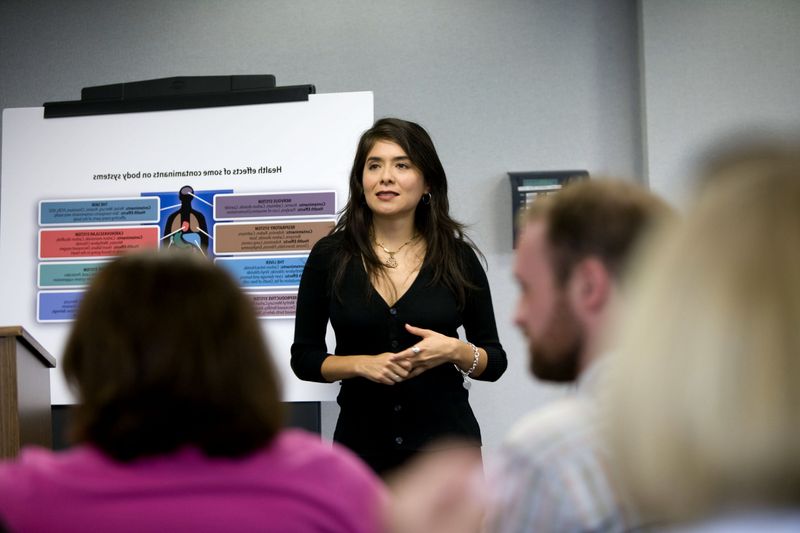Human history is replete with examples of repeated oversights and errors that could have been avoided with the benefit of hindsight. As new research highlights, there are 30 collective mistakes that society may risk encountering once more.
These mistakes span various facets of life, from environmental to political, and social to technological. This article aims to shed light on these potential pitfalls, exploring each with a unique perspective and creative flair.
1. Ignoring early signs of a pandemic
In the early months of 2020, the world was blindsided by a microscopic adversary. The echoes of past pandemics were loud, yet the signs were overlooked. Scientists had raised alarms, but voices got lost in the noise of everyday life. A mix of disbelief and unpreparedness led to global chaos, revealing a dire need for better early warning systems. What if we had acted sooner? Perhaps the outcome might have been different.
2. Overreliance on fossil fuels
Imagine a world where clear skies are a rarity. Overdependence on fossil fuels has painted a grim picture for our environment. Despite knowing the adverse effects, the addiction continues. This reliance not only accelerates climate change but also stifles innovation in renewable energy. The question remains: how long can Earth bear this burden? A shift towards sustainable energy is not just an option; it’s a necessity for the planet’s future.
3. Underestimating climate change
The gentle drip of melting ice often goes unnoticed until it’s too late. Underestimating climate change’s impact has been a recurring blind spot. As ice caps recede and sea levels rise, the repercussions are monumental. The scientific community has long warned of these impending shifts, yet complacency prevails. This oversight could lead to irreversible damage. It’s imperative to heed these warnings and take decisive action to mitigate future consequences.
4. Neglecting mental health crises
In a world that never pauses, mental health often takes a backseat. The silent struggles of many go unnoticed, overshadowed by physical health priorities. Despite growing awareness, mental health crises remain stigmatized and underfunded. This neglect leads to wider societal issues, affecting productivity and overall well-being. Addressing this requires empathy and systemic change, ensuring that mental health is valued as crucially as physical health.
5. Failing to regulate financial markets
The financial market’s volatility is akin to a high-stakes game. Without proper regulation, the risk of another economic meltdown looms. Lessons from past crashes have been short-lived, with greed overshadowing prudence. Unchecked, this can lead to widespread economic disparity and instability. Stricter oversight can prevent such catastrophes, ensuring a resilient economic framework that balances growth with security.
6. Allowing misinformation to spread unchecked
In the digital age, misinformation spreads faster than wildfire. Unchecked, it can sway opinions and disrupt societal harmony. The line between fact and fiction blurs, leading to confusion and distrust. Combatting this requires vigilance and media literacy, empowering individuals to discern credible information. The solution lies in collective responsibility, where truth prevails over sensationalism, ensuring informed decision-making.
7. Suppressing scientific research for politics
Scientific inquiry thrives on freedom, yet political agendas often stifle progress. Suppressing research for convenience jeopardizes innovation and societal advancement. History shows that politicizing science leads to setbacks, as seen in climate and health policies. Encouraging open discourse and prioritizing evidence-based decisions are vital for global progress. When science is sidelined, the world loses invaluable insights and opportunities for growth.
8. Mass surveillance without oversight
The allure of security often masks the threat to privacy. Unregulated mass surveillance encroaches on personal freedoms, creating a society of watchers and the watched. While intended to protect, it can lead to unwarranted invasions of privacy. Oversight is paramount, ensuring that surveillance practices respect individual rights. Balancing security with civil liberties is crucial, fostering a society where both coexist harmoniously.
9. Cutting education funding
Education is the bedrock of society, yet funding cuts cast long shadows over future generations. When resources dwindle, opportunities shrink, widening the gap between potential and reality. Quality education empowers individuals, driving innovation and progress. Short-sighted financial decisions compromise this, with repercussions felt for decades. Investing in education is investing in the future, a commitment to nurturing informed and capable citizens.
10. Ignoring warnings from whistleblowers
Whistleblowers often act as society’s moral compass, yet their warnings frequently go unheard. Fear of repercussions silences many, allowing negligence and malpractice to persist. Ignoring these voices can lead to catastrophic outcomes, from corporate scandals to governmental failures. Cultivating a culture of transparency and protection for whistleblowers is crucial for accountability and justice, ensuring that truth prevails over silence.
11. Not preparing for natural disasters
Nature’s wrath is unpredictable, yet preparation is often neglected. The cost of complacency during natural disasters is immeasurable, impacting lives and economies. Despite technological advances, many areas remain vulnerable due to inadequate planning and infrastructure. Emphasizing preparedness and resilience can mitigate these effects, safeguarding communities from future calamities. Learning from past experiences is crucial to avoid repeating mistakes.
12. Disregarding indigenous knowledge
Indigenous knowledge is a reservoir of wisdom, often overlooked in modern decision-making. This oversight dismisses invaluable insights into sustainable living and environmental stewardship. Embracing indigenous perspectives fosters inclusive progress and harmony with nature. Their holistic approach to life offers lessons in balance and respect, crucial for addressing contemporary challenges. Recognizing and integrating this knowledge enhances understanding and enriches societies.
13. Centralizing too much power
Concentrating power within a few hands breeds inequality and disenfranchisement. Centralization stifles innovation and can lead to authoritarian rule. Decentralizing authority encourages diverse perspectives, enriching decision-making processes. It fosters accountability and empowerment, ensuring that governance reflects the collective will. History warns of the dangers of power imbalances, a lesson in valuing democracy and shared responsibility.
14. Privatizing critical infrastructure
Critical infrastructure forms the backbone of society, yet privatization raises concerns over accessibility and equity. Profit-driven motives can compromise public welfare, leading to inflated costs and reduced service quality. Public control ensures accountability and prioritization of communal needs. Striking a balance between public and private interests is vital for sustainable development, safeguarding essential services for future generations.
15. Repeating discriminatory policies
History is marred by policies that marginalize and exclude. Repeating these mistakes perpetuates cycles of injustice and division. Recognizing and rectifying past wrongs is essential for progress, fostering inclusivity and equality. Education and awareness can dismantle prejudices, paving the way for harmonious societies. Upholding human rights and dignity is paramount, a collective commitment to eradicating discrimination in all forms.
16. Undervaluing public healthcare
Public healthcare is a lifeline, yet its value is often underestimated. Underfunding leads to strained resources, affecting patient care and outcomes. Investing in healthcare strengthens communities, ensuring access to essential services without the burden of cost. A robust public health system is crucial for resilience, capable of withstanding crises and safeguarding well-being. Recognizing its importance is a step towards a healthier society.
17. Rushing technological deployment
Technological advancement promises transformation, yet haste leads to unforeseen consequences. Rushing deployment can result in malfunctions and ethical dilemmas, overshadowing potential benefits. Thoughtful integration ensures technology enhances lives without compromising safety or values. Balancing innovation with caution allows for sustainable progress, where technology serves humanity’s needs with integrity and foresight. A measured approach fosters trust and long-term success.
18. Creating unsustainable supply chains
Global supply chains are intricate and vulnerable, often lacking resilience against disruptions. Unsustainable practices lead to environmental degradation and economic instability. Building robust, adaptable supply chains is essential for continuity and responsible resource management. Embracing sustainability ensures longevity and ethical production, benefiting businesses and communities alike. A commitment to sustainable practices fosters global cooperation and resilience against future challenges.
19. Ignoring youth perspectives
Youth voices are the harbingers of change, yet they are often disregarded in decision-making. Ignoring their perspectives stifles innovation and progress, overlooking valuable insights and energy. Embracing youth contributions fosters a dynamic, forward-thinking society, where diverse ideas drive solutions. Valuing their input is an investment in the future, empowering the next generation to lead with vision and purpose.
20. Failing to diversify leadership
Diversity in leadership enriches decision-making, offering varied perspectives and innovative solutions. Homogeneous leadership overlooks opportunities and fosters a narrow vision. Diversifying leadership promotes inclusivity, reflecting the society it serves. It enhances adaptability and competitiveness, driving growth and resilience. Embracing diversity is a strategic advantage, essential for navigating a complex, interconnected world with empathy and insight.
21. Prioritizing short-term profits
The allure of immediate profit often blinds businesses to long-term sustainability. Short-term priorities can compromise ethics, innovation, and stakeholder trust. Balancing short-term gains with long-term vision fosters sustainable growth and resilience. It’s a commitment to enduring success, where profitability aligns with societal and environmental responsibilities. Reorienting focus ensures businesses thrive amid changing landscapes, benefiting all stakeholders.
22. Delaying necessary reforms
Procrastination in enacting reforms stalls progress and innovation. Delays perpetuate outdated systems, hindering adaptability to new challenges. Timely reforms ensure relevance and effectiveness, addressing societal needs and fostering growth. Embracing change requires courage and foresight, a commitment to shaping a future that reflects contemporary values and priorities. Overcoming inertia paves the way for dynamic, responsive governance.
23. Disbanding international cooperation
International cooperation is vital for addressing global challenges, yet unilateralism threatens collective progress. Disbanding collaborations weakens efforts on climate, security, and development. Emphasizing diplomacy and shared goals strengthens resilience and unity, fostering a world where cooperation transcends borders. Global challenges require coordinated responses, a testament to humanity’s interconnected destiny and the power of working together.
24. Mismanaging data privacy
In the digital realm, data is currency, and privacy is paramount. Mismanagement leads to breaches, eroding trust and security. Protecting data privacy requires robust policies and transparency, ensuring users’ rights and confidence. As technology evolves, so must our approaches to safeguarding information, balancing convenience with protection. Upholding privacy is a cornerstone of digital ethics, fostering a secure and trustworthy online environment.
25. Over-policing marginalized communities
Over-policing marginalized communities perpetuates mistrust and division. It reflects systemic biases and impedes justice. Fostering community policing models promotes collaboration and understanding, ensuring safety without alienation. Building trust requires dialogue and empathy, addressing root causes of tension and fostering inclusive security. A just society values equity in law enforcement, nurturing an environment where all feel protected and respected.
26. Misjudging geopolitical threats
Geopolitical landscapes are intricate and volatile, requiring astute navigation. Misjudging threats can lead to conflict and instability, undermining peace efforts. Strategic foresight and diplomacy are essential for understanding and addressing these complexities, ensuring security and cooperation. Adapting to shifting dynamics fosters resilience, a commitment to peaceful coexistence and global harmony. Recognizing and responding to threats with clarity safeguards the future.
27. Neglecting arts and culture
Arts and culture enrich societies, yet they often face neglect in favor of economic pursuits. This oversight diminishes creativity and heritage, vital for identity and cohesion. Supporting arts fosters innovation, empathy, and expression, bridging divides and celebrating diversity. Recognizing their value nurtures a vibrant, dynamic society, where culture thrives alongside progress. Investing in arts and culture is investing in a richer, more connected world.
28. Widening income inequality
The chasm of income inequality threatens social stability and prosperity. When wealth concentrates, opportunities fade, leading to disenfranchisement. Bridging this gap requires equitable policies and inclusive growth, ensuring access to resources and opportunities for all. Addressing inequality fosters unity and progress, a shared commitment to social justice and collective well-being. A fairer distribution of wealth benefits society as a whole.
29. Downplaying cyber vulnerabilities
In an interconnected world, cyber vulnerabilities pose significant threats. Underestimating them risks critical infrastructure and personal security. Proactive measures and robust cybersecurity frameworks are essential for safeguarding assets and data. As cyber threats evolve, so must defenses, ensuring resilience against attacks. Protecting against cyber vulnerabilities is crucial for maintaining trust and stability in the digital age, a responsibility shared by all.
30. Overlooking small, local voices
Local voices are the heartbeat of communities, yet they often go unheard in broader dialogues. Overlooking these perspectives undermines grassroots development and innovation. Empowering local voices fosters inclusive progress, where community-driven solutions address unique challenges. Valuing local input enriches decision-making, ensuring diverse representation and understanding. Elevating small voices strengthens societal fabric, a testament to the power of collective action.
